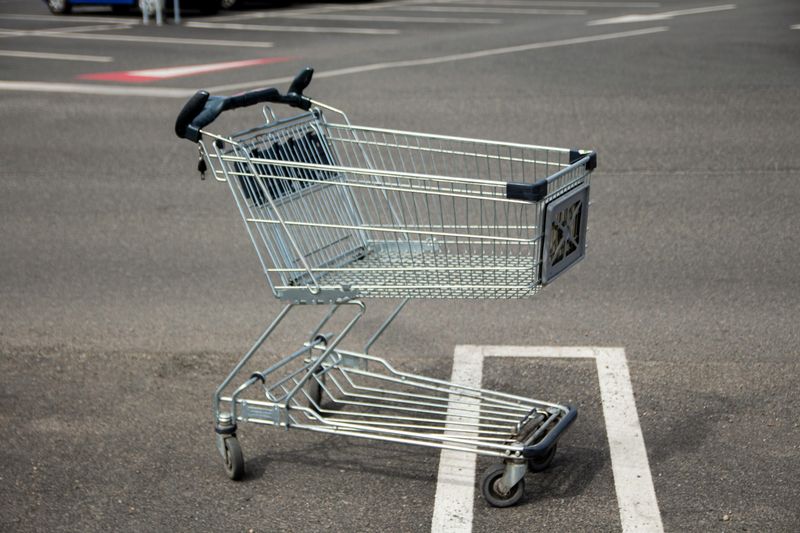12 Small Habits That Irritate Everyone — Even If They Don’t Say It

We all have quirks and habits that seem harmless to us but might drive others crazy. These small behaviors often go unchallenged because people are too polite to point them out. Understanding these irritating habits can help us become more self-aware and considerate in our daily interactions with others.
1. Loud Chewing With Your Mouth Open

Those lip-smacking sounds during lunch might seem trivial to you, but they’re making your coworkers silently scream inside. The technical term for this irritation is misophonia – a genuine condition where certain sounds trigger emotional responses.
Most people were taught basic table manners as children, which makes loud chewing particularly jarring in adult settings. The worst part? The chewer rarely notices their own noise.
Next time you’re enjoying a crunchy apple or chewy sandwich, take a moment to check yourself. A simple closed-mouth policy while eating shows respect for everyone sharing your space.
2. Constantly Interrupting Conversations

Cutting someone off mid-sentence sends a clear message: what you have to say matters more than what they’re sharing. This conversation hijacking happens everywhere – meetings, dinner tables, casual chats – leaving the interrupted person feeling devalued.
Many interrupters don’t realize they’re doing it. They get excited about their thoughts or worry they’ll forget their point if they wait. Some even believe they’re being helpful by finishing others’ sentences.
The solution is simple yet requires practice: count to two after someone finishes speaking before you jump in. This tiny pause creates space for complete thoughts and shows genuine respect.
3. Chronic Lateness Without Apology

Running behind schedule occasionally happens to everyone. The real problem emerges when someone consistently arrives late without acknowledging how it affects others. This habit forces punctual people to waste their valuable time waiting.
Chronic lateness often stems from optimistic time estimation or a subconscious power play. The late arriver controls when meetings begin while everyone else sits around checking their watches.
The lack of a genuine apology compounds the frustration. It signals that the late person doesn’t respect others’ time or doesn’t see anything wrong with their behavior. Being on time – or at least texting when you’re running behind – shows basic respect.
4. Leaving Shopping Carts in Parking Spaces

Abandoning your cart in the middle of a parking lot creates a domino effect of inconvenience. That metal contraption becomes an obstacle course for drivers, takes up valuable parking spots, and forces store employees to chase carts instead of helping customers.
The shopping cart theory suggests this behavior reveals character. Returning your cart is an easy good deed that benefits others with no reward for yourself – a small test of civic responsibility.
Weather excuses don’t hold up either. If you had the energy to push it around a store for an hour, the extra 30 seconds to return it properly shouldn’t be a dealbreaker. This tiny effort makes everyone’s day a little smoother.
5. Phone Checking During Conversations

Glancing at your phone mid-conversation broadcasts a clear message: whatever might be happening on that screen is potentially more interesting than the person right in front of you. This digital distraction has become normalized despite being fundamentally rude.
The behavior creates what experts call “phubbing” – phone snubbing – which research shows damages relationships over time. Even quick peeks signal divided attention and make meaningful connection impossible.
Try placing your phone face-down or, better yet, keeping it in your pocket or bag during social interactions. The world won’t end if you don’t immediately see that notification, but your relationships might slowly erode if you consistently prioritize your device over human connection.
6. Talking Loudly on Phone in Public

The entire bus doesn’t need to hear about your weekend plans or workplace drama. Public phone shouters force everyone within earshot to become unwilling participants in their personal conversations.
Volume control seems to malfunction for some people when they’re on the phone. They speak at levels appropriate for addressing a crowd rather than the single person on the other end of the line. Coffee shops, public transportation, and waiting rooms become involuntary audience spaces.
A simple awareness check helps: look around and notice if people are staring or seem uncomfortable. If they are, lower your voice or step outside. Everyone deserves their mental space in shared environments without audio intrusion from strangers.
7. Not Replacing Empty Toilet Paper Rolls

Few discoveries are more frustrating than reaching for toilet paper only to find an empty cardboard tube. The previous user saved themselves a whopping five seconds by avoiding this simple task, creating a far more inconvenient situation for the next person.
This tiny act of consideration (or lack thereof) speaks volumes about someone’s mindfulness. Homes, offices, and public restrooms all suffer from this particular brand of thoughtlessness.
The fix couldn’t be easier – keep spare rolls visible and accessible in bathrooms. When you use the last square, take the extra moment to replace it. This small courtesy prevents awkward situations and shows you care about the comfort of others sharing your space.
8. Sending One-Word Email Responses

The dreaded “OK” or “Thanks” email reply creates more work than it saves. These minimalist responses trigger notifications, interrupt workflow, and require opening an email that provides zero valuable information.
Email brevity can be a virtue, but these one-worders often feel dismissive rather than efficient. They leave the recipient wondering if you’re annoyed or if further discussion is needed. The confusion often leads to follow-up messages, creating more email traffic.
When a response is truly necessary, include enough context to be helpful. Otherwise, consider whether a reply is needed at all. Many email clients now offer reaction buttons that acknowledge receipt without creating a new message – a much more considerate option.
9. Leaving Dirty Dishes in the Sink

That crusty breakfast bowl abandoned in the sink creates a roadblock for everyone else needing to use the space. In shared kitchens – whether at home or work – this habit forces others to either work around your mess or clean up after you.
The psychology behind dish abandonment varies. Some people genuinely plan to handle it later but forget. Others subconsciously expect someone else will eventually tackle the cleanup.
A simple rule makes shared spaces more harmonious: if you dirty it, you clean it – promptly. When immediate washing isn’t possible, at least rinse the item so food doesn’t harden into cement. This small habit shows respect for communal areas and prevents passive-aggressive note wars.
10. Constant Complaining Without Solutions

Negative energy spreads faster than positivity. Chronic complainers create emotional drain by constantly pointing out problems without offering constructive ideas. Their conversations become one-way venting sessions rather than meaningful exchanges.
Research shows this habit affects both the complainer and their unwilling audience. The complainer reinforces their negative thought patterns while listeners experience increased stress and decreased mood. Over time, people begin avoiding these conversation black holes.
The fix involves a simple ratio check: for every problem mentioned, try offering at least one possible solution or silver lining. This approach transforms draining monologues into productive discussions. Even acknowledging when you’re just needing to vent helps others know what kind of response you’re looking for.
11. Walking Slowly in Groups Blocking Pathways

Sidewalk hogs create human traffic jams by spreading across walkways in horizontal lines. This spatial unawareness forces others to either slow to a crawl or attempt risky passing maneuvers on busy streets.
The problem multiplies in shopping centers, airports, and tourist areas where space is already limited. Groups often become so absorbed in their conversations they forget they’re in shared public spaces with traffic flow.
Considerate pedestrians practice spatial awareness by walking two abreast maximum on standard sidewalks. When someone needs to pass, a quick shift into single file allows smooth movement for everyone. This small adjustment prevents frustration for people in a hurry or those with mobility challenges trying to navigate around human barricades.
12. Not Using Turn Signals While Driving

Failing to signal isn’t just annoying – it’s dangerous. That little lever requires minimal effort yet provides crucial information to everyone sharing the road with you. Skipping this step forces other drivers to guess your intentions.
The excuses vary: some claim they forgot, others believe their movements are obvious without signals, and some admit they’re simply too lazy. None of these justifications hold up when considering the potential consequences.
Using turn signals consistently is one of the easiest ways to be a more courteous driver. This small habit prevents accidents, reduces road rage, and keeps traffic flowing smoothly. It’s a tiny motion that demonstrates respect for fellow travelers and basic road safety principles.

Comments
Loading…